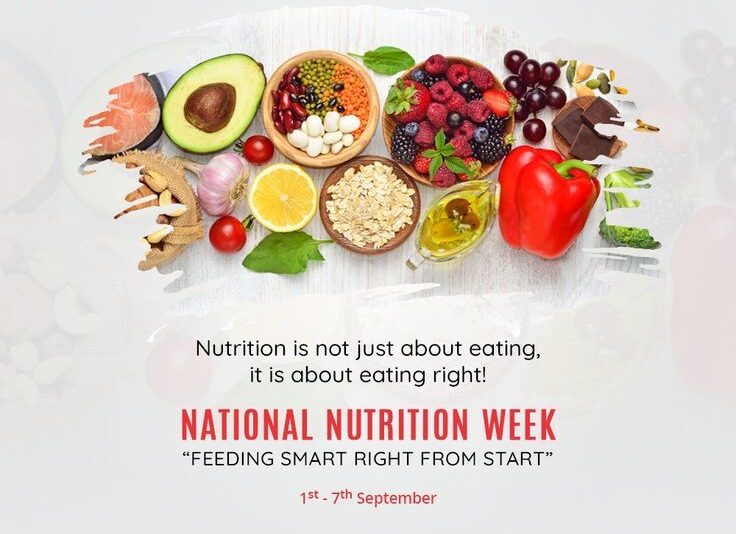🥦 7 Powerful Reasons Why National Nutrition Week Is Vital for a Healthier India
🧬 Introduction: Nutrition Is the Silent Architect of Our Lives
In a world where fast food dominates and lifestyle diseases are on the rise, nutrition often becomes a silent casualty. While most health campaigns talk about fitness, few emphasize the importance of balanced nutrition — the very foundation of physical, mental, and emotional well-being.
- 🧬 Introduction: Nutrition Is the Silent Architect of Our Lives
- 📜 History of National Nutrition Week
- 📅 Timeline: Evolution of National Nutrition Week in India
- 📊 Fascinating Facts About National Nutrition Week
- ❓ FAQs: What You Should Know About National Nutrition Week
- Q1: Why is National Nutrition Week celebrated in India?
- Q2: Who organizes it?
- Q3: Who is the target audience?
- Q4: What are common nutrition deficiencies in India?
- Q5: How can we improve nutrition in daily life?
- 🌟 Significance of National Nutrition Week
- ✅ 1. Awareness Is the First Step to Prevention
- ✅ 2. Focus on Maternal and Child Health
- ✅ 3. Breaks the Cycle of Poverty and Malnutrition
- ✅ 4. Reduces Burden on Healthcare
- ✅ 5. Promotes Nutrition Literacy
- 🧑🤝🧑 Observance: How India Celebrates National Nutrition Week
- 📌 Important Points You Must Know
- ❤️ Wishing Messages for National Nutrition Week
- 🧠 Impact on Our Daily Lives
- 🏁 Conclusion: Let Nutrition Be Your First Priority, Not Last Resort
That’s why National Nutrition Week, observed annually from September 1st to 7th, is not just another health campaign — it’s a life-saving wake-up call.
📜 History of National Nutrition Week
The concept of National Nutrition Week (NNW) originated in the United States in 1973 when the American Dietetic Association initiated it to raise awareness about the value of proper nutrition. India embraced this global health initiative much later, but with stronger intent.
In 1982, the Food and Nutrition Board of the Ministry of Women and Child Development, Government of India, launched the first National Nutrition Week in India. Since then, the week-long campaign has evolved to promote nutrition awareness, especially among children, women, rural populations, and underserved communities.
📅 Timeline: Evolution of National Nutrition Week in India
| Year | Milestone |
|---|---|
| 1973 | USA initiates National Nutrition Week |
| 1982 | India adopts National Nutrition Week (1st–7th Sept) |
| 1990s | Focus on child and maternal nutrition awareness |
| 2000s | Expansion to schools, colleges, anganwadis |
| 2020 | Integrated with Poshan Abhiyaan (India’s flagship nutrition scheme) |
| 2023 | Theme: “Healthy Diets Gawing Affordable for All” |
📊 Fascinating Facts About National Nutrition Week
🍎 Over 33% of Indian children under 5 are stunted due to malnutrition (NFHS-5).
🥛 Nutrition Week reaches 1 million+ children and women each year via outreach.
🧠 Brain development in the first 1000 days is directly tied to nutrition.
📊 Anemia affects more than 50% of adolescent girls in India.
🥗 Over 90% of adults in urban India consume less fiber than recommended.
🍚 Hidden hunger, or micronutrient deficiency, is widespread across all age groups.
👩⚕️ India ranks among the top nations globally in population-scale nutrition programs.
❓ FAQs: What You Should Know About National Nutrition Week
Q1: Why is National Nutrition Week celebrated in India?
To spread awareness about the importance of balanced diets, promote healthy eating habits, and combat malnutrition, especially among vulnerable sections.
Q2: Who organizes it?
It is led by the Food and Nutrition Board, under the Ministry of Women and Child Development, in collaboration with schools, anganwadi centers, NGOs, and hospitals.
Q3: Who is the target audience?
Infants and children
Pregnant and lactating women
Adolescents (especially girls)
Working-class adults
Elderly population
Q4: What are common nutrition deficiencies in India?
Iron (causing anemia)
Iodine (leading to goiter)
Vitamin A and D
Protein deficiency (kwashiorkor, marasmus)
Q5: How can we improve nutrition in daily life?
Include whole grains, fruits, green vegetables
Reduce processed and sugary food
Drink adequate water
Practice portion control and mindful eating
🌟 Significance of National Nutrition Week
✅ 1. Awareness Is the First Step to Prevention
Without awareness, people often mistake filling food for fulfilling food. National Nutrition Week educates people on the difference between calorie-rich and nutrient-rich diets.
✅ 2. Focus on Maternal and Child Health
Healthy mothers give birth to healthy children, reducing infant mortality and improving educational outcomes.
✅ 3. Breaks the Cycle of Poverty and Malnutrition
A well-nourished child performs better in school, grows into a productive adult, and helps lift their family from poverty — a virtuous cycle.
✅ 4. Reduces Burden on Healthcare
Good nutrition prevents lifestyle diseases such as diabetes, obesity, cardiovascular diseases, and hypertension, reducing hospital visits and economic burden.
✅ 5. Promotes Nutrition Literacy
Educating communities about reading food labels, meal planning, and budget-friendly nutrition makes healthy eating accessible for all.
🧑🤝🧑 Observance: How India Celebrates National Nutrition Week
🏫 Schools & Colleges
Host Nutrition Quizzes, Slogan Writing, and Poster Making.
Organize healthy tiffin competitions.
Conduct seminars on nutrition myths and reality.
🧒 Anganwadi & Healthcare Centers
Nutrition counseling sessions for expecting mothers
Distribution of iron, folic acid, and multivitamin supplements
Health check-up camps for children and women
🧘♀️ NGOs and Civil Society
Street plays on anemia, obesity, and junk food
Cooking demonstrations using local, seasonal ingredients
Social media awareness campaigns with nutrition experts
📌 Important Points You Must Know
Good nutrition begins before birth — in the womb.
Nutrition is not just food, it’s about timing, diversity, and portion size.
Hidden hunger is real — you can be overweight and still malnourished.
Nutrition is gendered — adolescent girls are more prone to deficiencies.
The first 1000 days (conception to age 2) are most critical for long-term development.
❤️ Wishing Messages for National Nutrition Week
🥗 “Eat Right, Feel Bright – Happy National Nutrition Week!”
🧒 “Nutrition is not a luxury; it’s your right. Wish you a healthy Nutrition Week!”
🍲 “Strong kids, strong nation – Fuel them with good nutrition!”
🍎 “Let food be your medicine and nutrition your power – Happy Nutrition Week!”
🧠 Impact on Our Daily Lives
| Area | Impact of Nutrition |
|---|---|
| 🧠 Brain Health | Sharp memory, better cognition |
| 🫀 Heart Health | Balanced cholesterol, better BP |
| 🧒 Child Growth | Improved height, energy, immunity |
| 😌 Mental Health | Reduces anxiety, stabilizes mood |
| 🏋️♀️ Energy | Enhanced stamina, alertness |
| 💪 Immunity | Protects against infections and fatigue |
🏁 Conclusion: Let Nutrition Be Your First Priority, Not Last Resort
National Nutrition Week isn’t about dieting trends or fancy meal plans. It’s about recognizing that every bite counts, especially in a country like India where malnutrition and obesity coexist.
Whether you’re a student, a parent, a policymaker, or just someone who loves their food — you have a role to play. Make nutrition a daily discipline, not a yearly reminder. Because a well-nourished population isn’t just healthier — it’s stronger, smarter, and more resilient.








